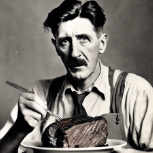-
Welcome to our Carnivore / Ketovore / Keto Online Community!
Welcome to Carnivore Talk! An online community of people who have discovered the benefits of an carnviore-centric ketogenic diet with the goal of losing weight, optimizing their health, and supporting and encouraging one another. We warmly welcome you! [Read More]
Fructose puts the body in low-power mode, fueling obesity
-
Similar Content
-
- 5 replies
- 388 views
-
- 6 replies
- 1,733 views
-
- 1 reply
- 230 views
-
How Ultra-Processed Foods Differ From Other Processed Foods
By Bob,
- processed food
- ultra-processed food
- (and 4 more)
- 6 replies
- 699 views
-
- 3 replies
- 1,127 views
-



Recommended Posts
Join the conversation
You can post now and register later. If you have an account, sign in now to post with your account.
Note: Your post will require moderator approval before it will be visible.